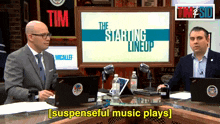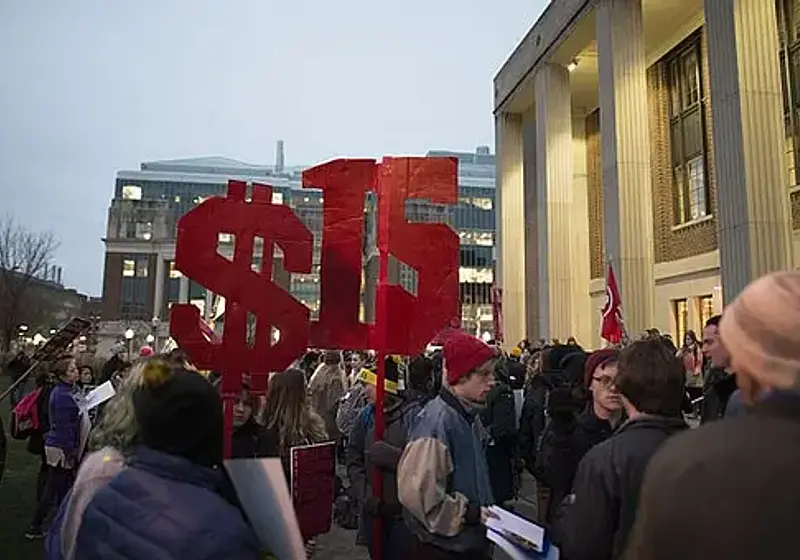As inflation rises, affecting everything from grocery store products to the housing market, it is becoming increasingly difficult for thousands of workers across the United States to afford basic necessities. Over one million Americans currently work in jobs or careers that pay at or around the current minimum wage of $7.25 per hour and at least 52 million make less than $15 per hour. If so much of the United States population is affected by the minimum wage, then why isn't it higher? The truth is, the matter of raising the minimum wage is much more complicated than it appears.
Let us slide into your dms 🥰
Get notified of top trending articles like this one every week! (we won't spam you)Specifics of Minimum Wage
To begin, it is important to understand exactly what the minimum wage is and who is affected by it. Around 53 million people in the United States make $15 per hour, earning only $31,200 per year, only if they work 40 hours a day and do not take any time off. The average American person needs $38,266 yearly to survive.
Over 50 million Americans alone cannot afford their rent and monthly expenses and people with children or other dependents have an even harder time. As a result, many have to work multiple jobs and children have to enter the workforce as early as 14 years old, creating an inescapable cycle.
Adults with multiple jobs not only have little time for family or leisure, but zero time at all to gain an education or advance their position. Working teenagers from low-income families have to balance work and school and, as it is needed to survive, work typically takes priority, hindering opportunities for higher education.
However, teenagers and young adults from the middle to upper class tend to work minimum-wage-earning jobs as well, though typically not for survival. In most places, an increase in the minimum wage will result in inflation of prices. Since most places that pay minimum wage are more frequently shopped at by those with lower incomes, an increase in the minimum wage would mean low-income people subsidizing high-income people.
This seems rather backward, but is it enough reason to not raise the minimum wage? In short, no. For every 10% increase in the minimum wage, product prices go up less than 1%. This consequence seems of low importance, considering it would also help low-income Americans greatly.
If raising the minimum wage mostly helps people, then why hasn't it been done? The federal minimum wage has not increased since 2009, losing over 20% of its value over the years, so why hasn't it been adjusted for modern life? The minimum wage question has been considered by politicians, journalists, and activists for years, never resulting in a straightforward, all-around positive answer. The reason for this is that raising the minimum wage would result in many unprecedented consequences.
Take the Quiz: Which Indian city is the perfect holiday spot for you!?
Let's match you with an Indian city that you would love!
Why hasn't the minimum wage been raised?
The minimum wage standard is a state law, meaning that each state can decide for itself what the state-wide minimum wage will be, as long as it is at or above the federal minimum wage of $7.25. This works well since the cost of living varies by state. For example, the minimum wage in Wyoming and Kansas is $7.25 since the states are majorly rural and do not have many large cities, so the cost of basic necessities is lower.
In New York and California, however, where there are many large cities and the cost of everything is higher, the minimum wage is over $15. The minimum wage is based on each state's best interest, which means a higher country-wide minimum wage could harm rural communities.
Image Credit: Steve Johnson from Pexels
Many economists find that increasing the minimum wage while lifting millions out of poverty, would also put millions out of the job. Major corporations can afford to pay workers more without letting anybody go, but smaller businesses would need to cut back on workers. In large cities, there are many major corporations, so workers would be able to find new jobs if necessary.
However, in rural areas and smaller towns, finding work would be difficult. Furthermore, higher-paying jobs could mean more qualifications which many low-income workers neither have nor can obtain.
The current state of minimum wage
Although the situation is complicated, many politicians and workers believe that an increased minimum wage is necessary. For many low-income workers, the situation is dire and there is little time to consider each and every consequence. When one's well-being and survival are on the line, immediate help is far more important than any moral dilemma.
In 2012, hundreds of fast food workers went on strike in New York, creating "Fight for $15", an organization focused on increasing the minimum wage to $15 per hour. Many politicians, including then-president Obama, Hillary Clinton, and Bernie Sanders, praised the strikers and even championed the wage. This protest proved valuable as, since 2012, the New York minimum wage has gone from $7.25 to $15.00 in New York City, Westchester, and Long Island, and $14.20 in the rest of the state.
Image Credit: Krzysztof Hepner from Unsplash
In 2021, the democratic party reintroduced a "Raise the Wage" act, which had never gone through in previous years, which would gradually raise the minimum wage from $7.25 to $15 by 2025. The act has yet to be passed as it is currently 2023 and the minimum wage has yet to change. At the moment, there have been no major developments in the fight for a higher federal minimum wage, but it is clear that a raise is necessary for the future.
So, what should happen?
A raise to $15.00 would be incredibly beneficial to workers. It would lift millions of families out of poverty. However, it would also force many workers out of their jobs.
Either way, low-income workers' lives will be drastically changed. Are the consequences worth raising the minimum wage?
Raising the minimum wage would help some and harm others, but it is better than doing nothing at all. In order for the majority of low-income families in the United States to rise from poverty, both in and outside of cities, many changes need to be made. Raising the minimum wage is just the beginning.
















